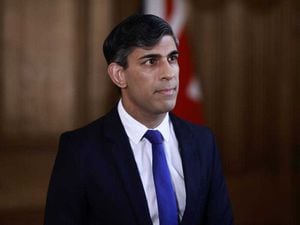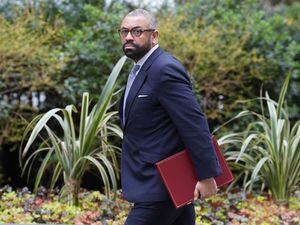Uber driver says 40,000 face financial disaster over London licence decision
James Farrar branded the move by Transport for London as “political”.
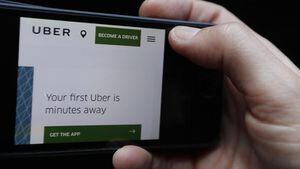
Thousands of Uber employees will have to deal with huge costs as they face unemployment after a “disastrous” decision by Transport for London (TfL) not to renew the firm’s licence, a driver has said.
James Farrar branded the decision political and criticised the capital’s transport operator for a shutdown that will leave 40,000 drivers out of work.
They will be left with no redundancy packages and some could be stuck having to continue vehicle lease repayments of up to £270 a week, he said.
Asked about the decision as he drove through central London just hours after it was announced, he said: “It’s disastrous, there’s 40,000 of us in London facing not only unemployment but financial ruin because so many people are tied up in leases or commercial car loans to finance these vehicles to work and they’re now stranded assets so unemployment and unmanageable debt is the future for many of these people.”
The father-of-two added: “We think we deserve at least an immediate meeting with the mayor to understand how we and the city is going to cope with 40,000 people suddenly being made unemployed.”
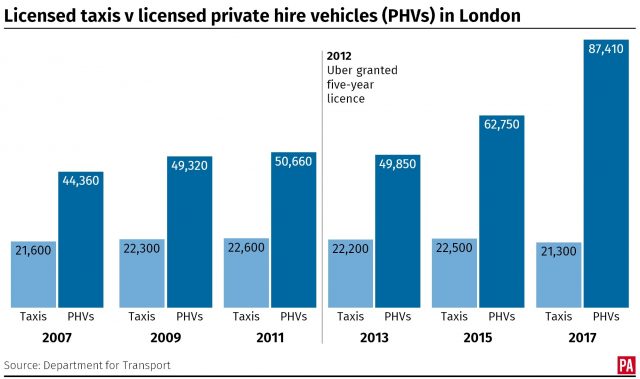
Laying the blame at TfL’s door, he said: “It’s the old story. We have been asked to make a false choice.
“Why can we not have a convenience in mobile applications for personal transportation? Why can’t we have it?
“Today the reason why we can’t have it is because TfL has been unable to manage that operator, that company. It’s failed.”
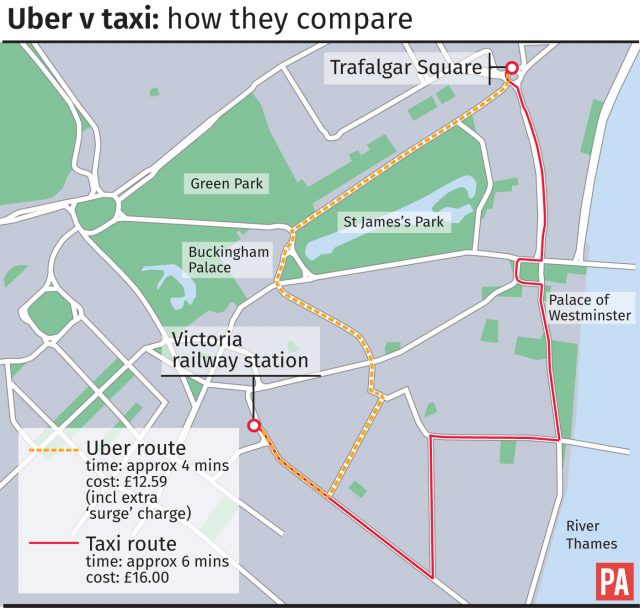
Mr Farrar, who has driven for Uber since 2014, said he was not opposed to the concept of Uber but had been outspoken on how it treated workers.
He said TfL had highlighted important issues including criminal records checks and drivers’ medical certificates in its decision, but failed to address the issue of employee rights.
If Uber’s appeal against the decision is unsuccessful, Mr Farrar said he believed another similar model would simply begin operating, because protection of workers rights had not been addressed.
He said: “The stage is set to repeat all the same mistakes.”
Mr Farrar, who lives in Bordon, Hampshire, but is originally from Wexford, was part of a landmark legal case last year which ended with a ruling that Uber’s employees should be recognised as workers, meaning they would be entitled to holiday pay and a guaranteed minimum wage.
Uber is also appealing against that decision, with a hearing set to take place next week.
Mr Farrar said he was confident because workers had an “emphatic victory” last year, but “frustrated” that the firm was appealing.
He said: “They’re taking on 40,000 workers because they don’t want to pay the minimum wage, not even the London minimum wage, the minimum wage. And that’s really frustrating.”



